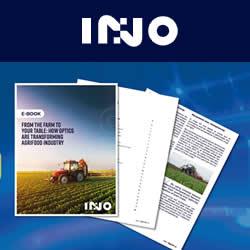Rumin8 Achieves First Regulatory Approval in Brazil
MIT Technology Review Names Rumin8 One of 15 Climate Tech Companies to Watch
Australian climate technology company, Rumin8, is a step closer to providing its methane reducing supplements to the world's largest cattle herd, after receiving feed ingredient approval in Brazil from the Ministry of Agriculture, Livestock and Food Supply for the Company's methane reducing feed additive.
The Brazilian approval follows the provisional regulatory authorization in New Zealand in late July1.
"Rumin8 is very quickly building a bank of regulatory authorizations required to progress the commercialization of our methane reducing feed additives for livestock," said Rumin8 CEO David Messina.
"Two regulatory authorities have now assessed the safety data of our products and both have allowed us to proceed through an important regulatory gateway. That provides Rumin8 with confidence that we are on the right pathway."
Rumin8 is developing solid feed and water-delivered formulations that leverage an organic active compound called Tribromomethane (TBM), which has been shown to be the most effective of all actives tested for methane reductions in livestock2. Rumin8's innovative technology uses a highly scalable, consistent, and cost-effective pharmaceutical grade manufacturing process to synthesize and stabilize the anti-methanogenic compound TBM.
With the receipt of the Brazilian feed ingredient approval, Rumin8 can progress efficacy and safety studies in commercial animals to generate the required data for full approval in Brazil.
Brazil has the largest cattle herd in the world, at almost 235 million head. By comparison, the US cattle herd is ~95 million head and the Australian herd is ~30 million head.
"Brazil is a key market for Rumin8 for two key reasons," Mr. Messina said. "Its large beef cattle population means that we can generate significant sales when we commercialize, and we can make a significant impact on reducing methane emissions - which is a key driver for Rumin8 and our shareholders."
"Adopting sustainable practices in beef production, while maintaining or boosting productivity, is particularly important in Brazil to maintain its position as a leading global beef exporter. Rumin8 is ticking those boxes with positive top-line results from three recent cattle trials indicating reductions of methane production of up to 86% and weight gains ranging from 8.4 percent to 12.5 percent higher than control groups that were fed the same base ration. The trials were undertaken by independent researchers in Australia, the United States and Brazil and funded by Rumin8."
Rumin8 was recently named one of the 15 Climate Tech companies to watch by the MIT Technology Review3.
About Rumin8
Rumin8 is pioneering a cost-effective, scalable pharmaceutical process to stabilize and produce Tribromomethane (TBM), the active anti-methanogenic molecule found in seaweed, to reduce methane emissions in livestock. Our feed additive is designed to provide cutting edge methane reductions and boost cattle productivity. In addition to our feed additive, Rumin8 is developing multiple formulations and delivery modalities to suit the diverse beef and dairy production systems worldwide.
____________________
1 Rumin8 achieves first regulatory approval in New Zealand
2 https://ww2.arb.ca.gov/sites/default/files/2020-12/17RD018.pdf
3 https://www.technologyreview.com/2024/10/01/1104432/2024-climate-tech-companies/
Featured Product

From the Farm to Your Table: How Optics Are Transforming Agrifood Industry
Agriculture is one of the pillars of our economy, providing jobs, revenue, raw materials and essential food products. However, the agricultural sector is facing many challenges, including the impact of climate change, the shortage of skilled labour and the need to produce more efficiently and sustainably. To tackle the problem, the agricultural world is undergoing a transformation thanks to new technologies and innovations based on optical technologies. In this 20-page e-book, we present how optical technologies are changing agrifood industry and the applications it now makes possible from the farm to your table.
